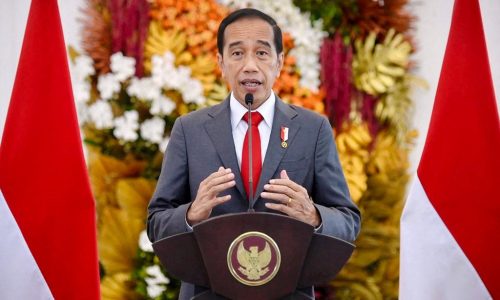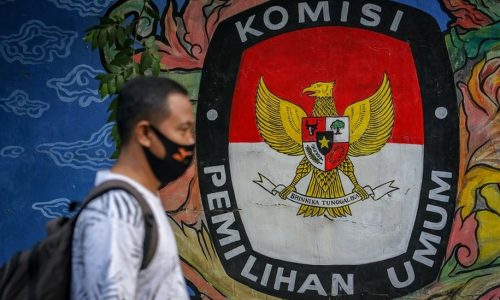The illicit practice of manipulating gold import duty was revealed to involve various customs officials. The crime had the state trillions of Rupiah of losses in tax evasion. This corruption case was handled by the Money Laundering Task Force (TPPU Task Force) and has become one of the Task Force’s priorities.
Initially, these illegal transactions were the result of gold import activities that were first made by Ivan Yustiavanda, Head of the Center for Financial Transaction Reports and Analysis (PPATK). In two periods starting from 2014-2016 and 2017-2019, search officers found indications of suspicious transactions worth more than IDR 300 trillion during the two periods.
According to Yustiavanda, the results of the investigation have not been followed up but have been submitted to the Directorate General of Customs and Excise.
“If proven, the criminal acts during the two periods of examination could exceed Rp. 360 trillion,” said Yustiavanda.
The manipulation of import code from Singapore
Disclosure was made by sources regarding the method of forging the Harmonized System (HS) code to avoid the imposition of customs tariffs on gold import activities under supervision under the authority of the Directorate General of Customs and Excise of the Ministry of Finance.
The provisions for the classification of gold import duty tariffs have two classifications. First, HS 7108.12.10 is determined for gold bullion that will be reprocessed and is not subject to tariffs. The second is the HS code 7108.12.90 for gold other than in the form of lumps, ingots, or ingots which are subject to 5% tariff. Third, HS code 7108.13.00, it is an import of semi-finished gold with a 5% tariff. Fourth, HS 7115.90.10 is a gold bar that is ready to sell immediately that is subject to a tax rate of 5%.
Meanwhile, other rates imposed include 11% Value Added Tax (VAT); 2.5% Income tax (PPh) for importers with an import identification number; and 7.5% for importers without an import identification number.
Information from sources stated that during the 2017-2023 period, there were non-taxable gold import transactions with a value touching US$ 10.6 billion or IDR 159 trillion.
Initial allegations involve Customs authorities manipulating the HS code. “They play on the HS code which does not match the imported goods. For example, jewelry items have their HS code changed to gold bars,” said a state official.
During the last 6 years, a source stated that the biggest market came from:
- Singapore valued at US$ 7 billion;
- Australia valued at US$ 1.24 billion; And
- The United Kingdom is worth US $ 1.18 billion.
While the ranks of companies that are the biggest gold importers include PT AT, PT KUM, PT IKS, PT IGS, and PT UB. Several of these companies are suspected of rigging gold imports to avoid import duties and this has been done since the beginning of the import process by changing the HS code.
Data revealed that imported documents through custom clearance from Singapore as the country of origin are written with HS code 7108.13.00, which is intended for semi-finished products and are subject to a 5% tariff. However, after entering the country the code changes to HS 7108.12.10, which is intended for Gold (including gold plated with platinum) unwrought or in semi-manufactured forms, or in powder form and subject to zero percent import duty.
“However, when it arrived at Indonesian Customs and Excise, the HS code on the document sheet changed to 7108.12.10, which means that it is not subject to import duty, or zero percent,” said the source.
Import process
The gold import scheme to Indonesia is carried out through several stages:
- The importer conducts his own assessment of the HS code of the imported gold;
- The importer prepares documents for the import of goods (PIB);
- PIB is submitted to Customs and Excise via email;
- Customs and Excise system checks for the completeness of PIB;
- Customs determines import routes based on management risk.
Meanwhile, the import route goes through 3 channels:
- Red line: Customs and Excise officers physically inspect goods and conduct document research to determine tariffs and customs values and classification according to regulations;
- Yellow line: There is no physical inspection of the goods, but the Customs and Excise officer will examine the import documents and supporting documents including invoices, packing lists, sales contracts and payment documents;
- Green line: There is no physical inspection of goods and goods can be issued immediately.
Allegations and reports submitted since the 2016-2017
Reports and allegations of manipulating HS codes have been known to occur since 2016 at the Customs area of Soekarno-Hatta Airport. In 2021, Arteria Dahlan, Commission III of the Indonesian Democratic Party of Struggle faction of the House of Representatives (DPR) mentioned the alleged fraud by the Director General of Customs and Excise at Soekarno-Hatta Airport.
At that time, during the process of importing gold valued at IDR 47.1 trillion, there were manipulative actions that were not in accordance with the rules causing the imported gold to be exempted from tax.
“Data of the gold from Singapore has been changed from being semi-finished and labelled, to become a product of unrecognized raw gold lumps,” said Dahlan.
Meanwhile, Mahfud MD confirmed that to the Financial Transaction Reports and Analysis Center (PPATK) had made reports on suspected money laundering to the Ministry of Finance in 2017 through the Director General of Customs and Excise, the Inspector General of the Ministry of Finance and two other officials. However, until 2020 the report was not followed up by the Ministry of Finance.
Reports begin in 2022
Meanwhile, Sri Mulyani Indrawati only learned about the report in 2022 during a meeting with the PPATK. The data submitted to Sri Mulyani was not about money laundering but about tax deficiencies at the Directorate General of Customs and Excise.
“When investigated by the Ministry of Finance, it was only found that there was a lack of tax that had to be paid. Even though the report was related to allegations of money laundering,” Sri said.
However, on the other hand Mahfud Md also confirmed the method of falsification of the HS code by importers. During the investigation process, the Directorate General of Customs and Excise said that the import was not made of gold bars but pure gold to be printed in Surabaya. However, after being traced the factory is not in Surabaya.
“The import of gold bars is expensive, but in the excise letter it says raw gold,” said Mahfud Md.
Meanwhile, the Ministry of Finance dismissed the accusations of the case, on the pretext that the Directorate General of Customs and Excise was one of the investigating entities in the case. Meanwhile, the Supreme Court stated that there was no criminal element committed.
Common practice of HS code manipulation
Yusuf Wibisono, Executive Director of Indonesia Development and Islamic Studies (Ideas) stated that this method of falsification of the HS code has often occurred not only in the import of gold but also in other commodities, such as steel and nickel.
“This method is the simplest way to avoid import duties,” explained Wibisono.
This code switching is also a form of avoidance in international trade which is detrimental to imports due to loss of import duty revenue.
“This case has been rife for a long time. Patterns like this should not be allowed to repeat themselves,” added Wibisono.
According to Wibisono, the loss to the state due to this incident was not small. The losses is estimated to reach more than IDR 10 trillion for the total non-taxable gold import transactions recorded in the last 6 years.
Wibisono said that this incident could not have happened without the involvement of related parties, such as the Directorate General of Customs and Excise. “There is a strong suspicion that the manipulation of the HS code occurred not in the exporting country, but in Indonesia,” concluded Wibisono.









